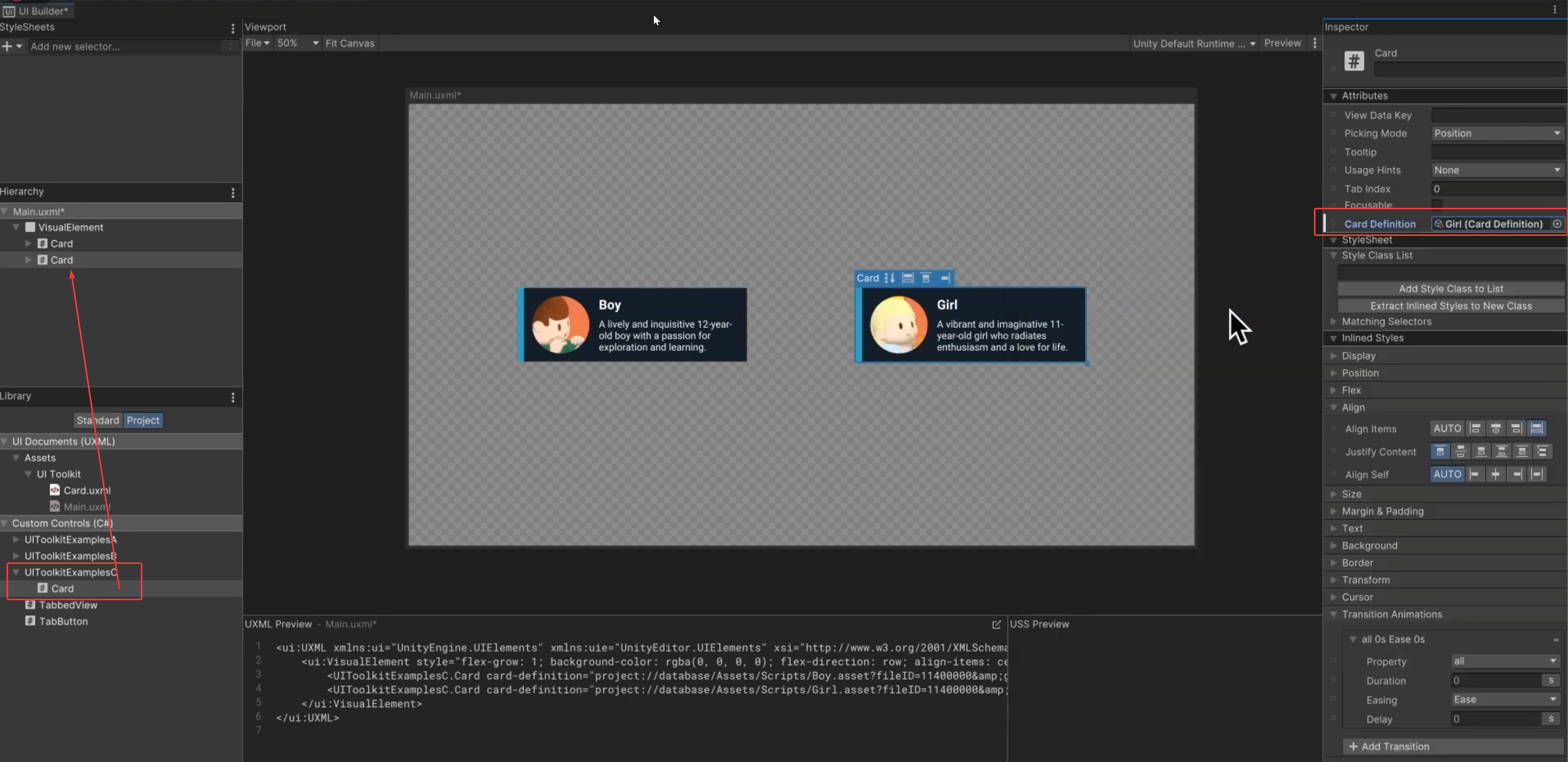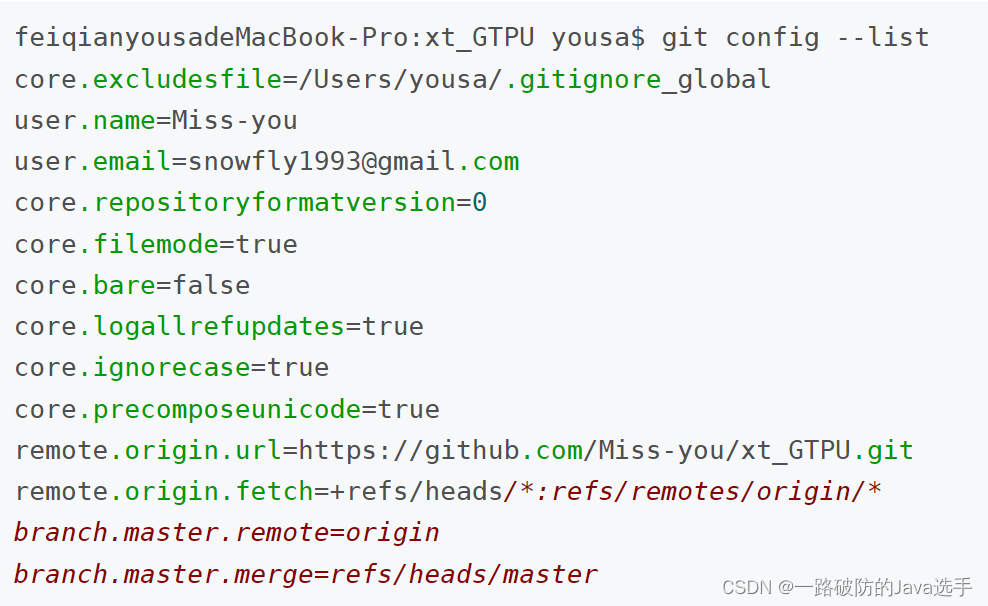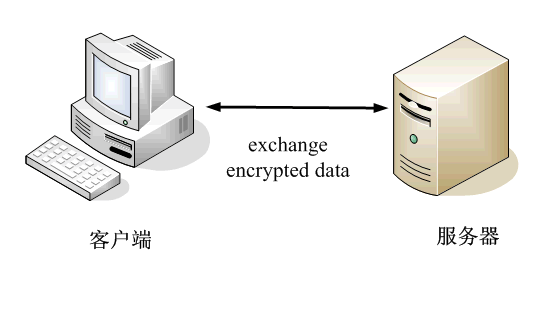Apache Arrow 优点 :
高性能数据处理: Arrow 使用列式内存布局,这特别适合于数据分析和查询操作,因为它允许对数据进行高效批量处理,减少CPU缓存未命中,从而提升处理速度。
零拷贝数据共享: Arrow 允许不同系统和进程之间直接共享内存中的数据而无需复制,这对于提高数据密集型应用的效率至关重要,减少了内存使用和CPU开销。
跨平台兼容性: Arrow 是一个跨语言开发平台,支持C++, Java, Python等多种编程语言,促进了不同软件组件间的互操作性。
标准化数据格式: 定义了一套统一的数据格式规范,使得数据可以在不同系统间无缝传递,降低了数据转换的成本和复杂性。
优化大数据处理: 特别是在与大数据框架(如Spark、Pandas)集成时,Arrow 可显著加速数据加载、处理和分析的速度,例如,与PySpark集成后数据处理速度提升高达53倍。
集成广泛: 被众多数据处理工具和库采用,如Pandas、Parquet、Drill、Spark等,形成了强大的生态系统。
Apache Arrow 缺点 :
内存消耗: 列式存储相对于行式存储可能需要更多的内存,尤其是在处理稀疏数据或宽表时,因为每一列都需要分配连续的内存空间。
不适合所有场景: 对于需要频繁随机访问记录或更新操作的场景,Arrow 的列式存储可能不如传统的行式存储高效。
学习曲线: 对于新用户来说,理解和掌握Arrow的数据结构和API可能需要一定时间,尤其是当他们习惯于使用其他数据处理模型时。
生态成熟度: 虽然Arrow的生态系统正在快速发展,但在某些特定领域或小众技术栈中,相关支持和工具可能不够丰富或成熟。
实现复杂性: 对于开发者来说,实现Arrow的高效利用可能涉及到复杂的内存管理和优化策略,这在某些情况下可能会增加开发难度。
#define ARROW_COMPUTE
#include <arrow/compute/api.h>
#include "arrow/pretty_print.h"
#include <arrow/api.h>
#include <arrow/csv/api.h>
#include <arrow/json/api.h>
#include <arrow/io/api.h>
#include <arrow/table.h>
#include <arrow/pretty_print.h>
#include <arrow/result.h>
#include <arrow/status.h>
#include <arrow/ipc/api.h>
#include <parquet/arrow/reader.h>
#include <parquet/arrow/writer.h>
#include <parquet/exception.h>
#include <memory>
#include <iostream>
template <typename T>
using numbuildT = arrow::NumericBuilder<T>;
struct ArrowUtil {
static arrow::Status read_csv(char const* file_name, std::shared_ptr<arrow::Table>& tb);
static arrow::Status read_ipc(char const* file_name, std::shared_ptr<arrow::Table>& tb);
static arrow::Status read_parquet(char const* file_name, std::shared_ptr<arrow::Table>& tb);
static arrow::Status read_json(char const* file_name, std::shared_ptr<arrow::Table>& tb);
static arrow::Status write_ipc(arrow::Table const& tb, char const* file_name);
static arrow::Status write_parquet(arrow::Table const& tb, char const* file_name);
template <typename T, typename buildT, typename arrayT>
inline static std::shared_ptr<arrow::Array> chunked_array_to_array(std::shared_ptr<arrow::ChunkedArray> const& array_a) {
buildT int64_builder;
int64_builder.Resize(array_a->length());
std::vector<T> int64_values;
int64_values.reserve(array_a->length());
for (int i = 0; i < array_a->num_chunks(); ++i) {
auto inner_arr = array_a->chunk(i);
auto int_a = std::static_pointer_cast<arrayT>(inner_arr);
for (int j = 0; j < int_a->length(); ++j) {
int64_values.push_back(int_a->Value(j));
}
}
int64_builder.AppendValues(int64_values);
std::shared_ptr<arrow::Array> array_a_res;
int64_builder.Finish(&array_a_res);
return array_a_res;
}
template <typename T, typename arrayT>
inline static std::vector<T> chunked_array_to_vector(std::shared_ptr<arrow::ChunkedArray> const& array_a) {
std::vector<T> int64_values;
int64_values.reserve(array_a->length());
for (int i = 0; i < array_a->num_chunks(); ++i) {
auto inner_arr = array_a->chunk(i);
auto int_a = std::static_pointer_cast<arrayT>(inner_arr);
for (int j = 0; j < int_a->length(); ++j) {
int64_values.push_back(int_a->Value(j));
}
}
return int64_values;
}
inline static std::vector<std::string> chunked_array_to_str_vector(std::shared_ptr<arrow::ChunkedArray> const& array_a) {
std::vector<std::string> int64_values;
int64_values.reserve(array_a->length());
for (int i = 0; i < array_a->num_chunks(); ++i) {
auto inner_arr = array_a->chunk(i);
auto int_a = std::static_pointer_cast<arrow::StringArray>(inner_arr);
for (int j = 0; j < int_a->length(); ++j) {
int64_values.push_back(int_a->Value(j).data());
}
}
return int64_values;
}
inline static std::shared_ptr<arrow::Array> chunked_array_to_str_array(std::shared_ptr<arrow::ChunkedArray> const& array_a) {
arrow::StringBuilder int64_builder;
int64_builder.Resize(array_a->length());
std::vector<std::string> int64_values;
int64_values.reserve(array_a->length());
for (int i = 0; i < array_a->num_chunks(); ++i) {
auto inner_arr = array_a->chunk(i);
auto int_a = std::static_pointer_cast<arrow::StringArray>(inner_arr);
for (int j = 0; j < int_a->length(); ++j) {
int64_values.push_back(int_a->Value(j).data());
}
}
int64_builder.AppendValues(int64_values);
std::shared_ptr<arrow::Array> array_a_res;
int64_builder.Finish(&array_a_res);
return array_a_res;
}
};
arrow::Status ArrowUtil::read_csv(char const* file_name, std::shared_ptr<arrow::Table>& tb) {
ARROW_ASSIGN_OR_RAISE(auto input_file,
arrow::io::ReadableFile::Open(file_name));
ARROW_ASSIGN_OR_RAISE(auto csv_reader,
arrow::csv::TableReader::Make(
arrow::io::default_io_context(), input_file,
arrow::csv::ReadOptions::Defaults(),
arrow::csv::ParseOptions::Defaults(),
arrow::csv::ConvertOptions::Defaults()));
ARROW_ASSIGN_OR_RAISE(auto table, csv_reader->Read());
tb = table;
return arrow::Status::OK();
}
arrow::Status ArrowUtil::read_ipc(char const* file_name, std::shared_ptr<arrow::Table>& tb) {
ARROW_ASSIGN_OR_RAISE(auto input_file,
arrow::io::ReadableFile::Open(file_name));
ARROW_ASSIGN_OR_RAISE(auto ipc_reader, arrow::ipc::RecordBatchFileReader::Open(input_file));
std::vector<std::shared_ptr<arrow::RecordBatch>> batches;
batches.reserve(ipc_reader->num_record_batches());
for (int i = 0; i < ipc_reader->num_record_batches(); ++i) {
ARROW_ASSIGN_OR_RAISE(auto a_record, ipc_reader->ReadRecordBatch(i));
batches.emplace_back(std::move(a_record));
}
arrow::Table::FromRecordBatches(ipc_reader->schema(), std::move(batches)).Value(&tb);
return arrow::Status::OK();
}
arrow::Status ArrowUtil::read_parquet(char const* file_name, std::shared_ptr<arrow::Table>& tb) {
std::shared_ptr<arrow::io::ReadableFile> infile;
PARQUET_ASSIGN_OR_THROW(infile,
arrow::io::ReadableFile::Open(file_name,
arrow::default_memory_pool()));
std::unique_ptr<parquet::arrow::FileReader> reader;
PARQUET_THROW_NOT_OK(
parquet::arrow::OpenFile(infile, arrow::default_memory_pool(), &reader));
std::shared_ptr<arrow::Table> table;
PARQUET_THROW_NOT_OK(reader->ReadTable(&table));
tb = table;
return arrow::Status::OK();
}
arrow::Status ArrowUtil::read_json(char const* file_name, std::shared_ptr<arrow::Table>& tb) {
std::shared_ptr<arrow::io::ReadableFile> infile;
PARQUET_ASSIGN_OR_THROW(infile,
arrow::io::ReadableFile::Open(file_name,
arrow::default_memory_pool()));
ARROW_ASSIGN_OR_RAISE(auto reader, arrow::json::TableReader::Make(arrow::default_memory_pool(), infile, arrow::json::ReadOptions::Defaults(), arrow::json::ParseOptions::Defaults()));
ARROW_ASSIGN_OR_RAISE(auto res_tb, reader->Read());
tb = res_tb;
return arrow::Status::OK();
}
arrow::Status ArrowUtil::write_ipc(arrow::Table const& tb, char const* file_name) {
ARROW_ASSIGN_OR_RAISE(auto output_file,
arrow::io::FileOutputStream::Open(file_name));
ARROW_ASSIGN_OR_RAISE(auto batch_writer,
arrow::ipc::MakeFileWriter(output_file, tb.schema()));
ARROW_RETURN_NOT_OK(batch_writer->WriteTable(tb));
ARROW_RETURN_NOT_OK(batch_writer->Close());
return arrow::Status::OK();
}
arrow::Status ArrowUtil::write_parquet(arrow::Table const& tb, char const* file_name) {
std::shared_ptr<arrow::io::FileOutputStream> outfile;
PARQUET_ASSIGN_OR_THROW(
outfile, arrow::io::FileOutputStream::Open(file_name));
// The last argument to the function call is the size of the RowGroup in
// the parquet file. Normally you would choose this to be rather large but
// for the example, we use a small value to have multiple RowGroups.
PARQUET_THROW_NOT_OK(
parquet::arrow::WriteTable(tb, arrow::default_memory_pool(), outfile, 3));
return arrow::Status::OK();
}
void testReadCSV() {
// 读取CSV文件
char const* csv_path = "./test.csv";
std::shared_ptr<arrow::Table> tb;
ArrowUtil::read_csv(csv_path, tb);
auto const& tb_ = *tb;
arrow::PrettyPrint(tb_, {}, &std::cerr);
assert(tb_.num_rows() == 2);
}
void testWriteIpc() {
// 读取CSV文件并写入IPC文件
char const* csv_path = "./test.csv";
std::shared_ptr<arrow::Table> tb;
ArrowUtil::read_csv(csv_path, tb);
auto const& tb_ = *tb;
char const* write_csv_path = "./test_dst.arrow";
arrow::PrettyPrint(tb_, {}, &std::cerr);
auto write_res = ArrowUtil::write_ipc(tb_, write_csv_path);
assert(write_res == arrow::Status::OK());
}
void testReadIPC() {
// 读取Arrow IPC 文件
char const* ipc_path = "./test_dst.arrow";
std::shared_ptr<arrow::Table> tb;
ArrowUtil::read_ipc(ipc_path, tb);
auto const& tb_ = *tb;
arrow::PrettyPrint(tb_, {}, &std::cerr);
assert(tb_.num_rows() == 2);
}
void testWriteParquet() {
// 写入Parquet文件
char const* csv_path = "./test.csv";
std::shared_ptr<arrow::Table> tb;
ArrowUtil::read_csv(csv_path, tb);
auto const& tb_ = *tb;
char const* write_parquet_path = "./test_dst.parquet";
arrow::PrettyPrint(tb_, {}, &std::cerr);
auto write_res = ArrowUtil::write_parquet(tb_, write_parquet_path);
assert(write_res == arrow::Status::OK());
}
void testReadParquet() {
// 读取 Parquet
char const* parquet_path = "./test_dst.parquet";
std::shared_ptr<arrow::Table> tb;
ArrowUtil::read_parquet(parquet_path, tb);
auto const& tb_ = *tb;
arrow::PrettyPrint(tb_, {}, &std::cerr);
assert(tb_.num_rows() == 2);
}
void testReadJson() {
// 读取Json文件
char const* json_path = "./test.json";
std::shared_ptr<arrow::Table> tb;
ArrowUtil::read_json(json_path, tb);
auto const& tb_ = *tb;
arrow::PrettyPrint(tb_, {}, &std::cerr);
assert(tb_.num_rows() == 2);
}
void testComputeGreater() {
// 比较两列 int 值中 int1 > int2的值, greater函数
char const* json_path = "./comp_gt.csv";
std::shared_ptr<arrow::Table> tb;
ArrowUtil::read_csv(json_path, tb);
auto const& tb_ = *tb;
arrow::PrettyPrint(tb_, {}, &std::cerr);
auto array_a = tb_.GetColumnByName("int1");
auto array_b = tb_.GetColumnByName("int2");
auto array_a_res = ArrowUtil::chunked_array_to_array<int64_t, numbuildT<arrow::Int64Type>, arrow::Int64Array>(array_a);
auto array_b_res = ArrowUtil::chunked_array_to_array<int64_t, numbuildT<arrow::Int64Type>, arrow::Int64Array>(array_b);
auto compared_datum = arrow::compute::CallFunction("greater", { array_a_res, array_b_res });
auto array_a_gt_b_compute = compared_datum->make_array();
arrow::PrettyPrint(*array_a_gt_b_compute, {}, &std::cerr);
auto schema =
arrow::schema({ arrow::field("int1", arrow::int64()), arrow::field("int2", arrow::int64()),
arrow::field("a>b? (arrow)", arrow::boolean()) });
std::shared_ptr<arrow::Table> my_table = arrow::Table::Make(
schema, { array_a_res, array_b_res, array_a_gt_b_compute }, tb_.num_rows());
arrow::PrettyPrint(*my_table, {}, &std::cerr);
}
void testComputeMinMax() {
// 计算int1列的最大值和最小值
char const* json_path = "./comp_gt.csv";
std::shared_ptr<arrow::Table> tb;
ArrowUtil::read_csv(json_path, tb);
auto const& tb_ = *tb;
arrow::PrettyPrint(tb_, {}, &std::cerr);
auto array_a = tb_.GetColumnByName("int1");
auto array_a_res = ArrowUtil::chunked_array_to_array<int64_t, numbuildT<arrow::Int64Type>, arrow::Int64Array>(array_a);
arrow::compute::ScalarAggregateOptions scalar_aggregate_options;
scalar_aggregate_options.skip_nulls = false;
auto min_max = arrow::compute::CallFunction("min_max", { array_a_res }, &scalar_aggregate_options);
// Unpack struct scalar result (a two-field {"min", "max"} scalar)
auto min_value = min_max->scalar_as<arrow::StructScalar>().value[0];
auto max_value = min_max->scalar_as<arrow::StructScalar>().value[1];
assert(min_value->ToString() == "1");
assert(max_value->ToString() == "8");
}
#define GTEST_TEST(a, b) void a##_##b()
#define ASSERT_EQ(a, b) assert(a == b)
GTEST_TEST(RWTests, ComputeMean) {
// 计算int1列的平均值
char const* json_path = "../data/comp_gt.csv";
std::shared_ptr<arrow::Table> tb;
ArrowUtil::read_csv(json_path, tb);
auto const& tb_ = *tb;
arrow::PrettyPrint(tb_, {}, &std::cerr);
auto array_a = tb_.GetColumnByName("int1");
auto array_a_res = ArrowUtil::chunked_array_to_array<int64_t, numbuildT<arrow::Int64Type>, arrow::Int64Array>(array_a);
arrow::compute::ScalarAggregateOptions scalar_aggregate_options;
scalar_aggregate_options.skip_nulls = false;
auto mean = arrow::compute::CallFunction("mean", { array_a_res }, &scalar_aggregate_options);
auto const& mean_value = mean->scalar_as<arrow::Scalar>();
ASSERT_EQ(mean_value.ToString(), "4.5");
}
GTEST_TEST(RWTests, ComputeAdd) {
// 将第一列的值加3
char const* json_path = "../data/comp_gt.csv";
std::shared_ptr<arrow::Table> tb;
ArrowUtil::read_csv(json_path, tb);
auto const& tb_ = *tb;
arrow::PrettyPrint(tb_, {}, &std::cerr);
auto array_a = tb_.GetColumnByName("int1");
auto array_a_res = ArrowUtil::chunked_array_to_array<int64_t, numbuildT<arrow::Int64Type>, arrow::Int64Array>(array_a);
arrow::compute::ScalarAggregateOptions scalar_aggregate_options;
scalar_aggregate_options.skip_nulls = false;
std::shared_ptr<arrow::Scalar> increment = std::make_shared<arrow::Int64Scalar>(3);
auto add = arrow::compute::CallFunction("add", { array_a_res, increment }, &scalar_aggregate_options);
std::shared_ptr<arrow::Array> incremented_array = add->array_as<arrow::Array>();
arrow::PrettyPrint(*incremented_array, {}, &std::cerr);
}
GTEST_TEST(RWTests, ComputeAddArray) {
// int1和int2两列相加
char const* json_path = "../data/comp_gt.csv";
std::shared_ptr<arrow::Table> tb;
ArrowUtil::read_csv(json_path, tb);
auto const& tb_ = *tb;
arrow::PrettyPrint(tb_, {}, &std::cerr);
auto array_a = tb_.GetColumnByName("int1");
auto array_a_res = ArrowUtil::chunked_array_to_array<int64_t, numbuildT<arrow::Int64Type>, arrow::Int64Array>(array_a);
auto array_b = tb_.GetColumnByName("int2");
auto array_b_res = ArrowUtil::chunked_array_to_array<int64_t, numbuildT<arrow::Int64Type>, arrow::Int64Array>(array_b);
arrow::compute::ScalarAggregateOptions scalar_aggregate_options;
scalar_aggregate_options.skip_nulls = false;
auto add = arrow::compute::CallFunction("add", { array_a_res, array_b_res }, &scalar_aggregate_options);
std::shared_ptr<arrow::Array> incremented_array = add->array_as<arrow::Array>();
arrow::PrettyPrint(*incremented_array, {}, &std::cerr);
}
GTEST_TEST(RWTests, ComputeStringEqual) {
// 比较s1和s2两列是否相等
char const* json_path = "../data/comp_s_eq.csv";
std::shared_ptr<arrow::Table> tb;
ArrowUtil::read_csv(json_path, tb);
auto const& tb_ = *tb;
arrow::PrettyPrint(tb_, {}, &std::cerr);
auto array_a = tb_.GetColumnByName("s1");
auto array_a_res = ArrowUtil::chunked_array_to_str_array(array_a);
auto array_b = tb_.GetColumnByName("s2");
auto array_b_res = ArrowUtil::chunked_array_to_str_array(array_b);
arrow::compute::ScalarAggregateOptions scalar_aggregate_options;
scalar_aggregate_options.skip_nulls = false;
auto eq_ = arrow::compute::CallFunction("equal", { array_a_res, array_b_res }, &scalar_aggregate_options);
std::shared_ptr<arrow::Array> eq_array = eq_->array_as<arrow::Array>();
arrow::PrettyPrint(*eq_array, {}, &std::cerr);
}
GTEST_TEST(RWTests, ComputeCustom) {
// 自己写算法逐个比较相等
char const* json_path = "../data/comp_s_eq.csv";
std::shared_ptr<arrow::Table> tb;
ArrowUtil::read_csv(json_path, tb);
auto const& tb_ = *tb;
arrow::PrettyPrint(tb_, {}, &std::cerr);
auto arr1 = tb_.GetColumnByName("s1");
auto arr2 = tb_.GetColumnByName("s2");
auto v1 = ArrowUtil::chunked_array_to_str_vector(arr1);
auto v2 = ArrowUtil::chunked_array_to_str_vector(arr2);
for (std::size_t i = 0; i < v1.size(); ++i) {
if (v1[i] != v2[i]) {
std::cerr << v1[i] << "!=" << v2[i] << "\n";
}
}
}
GTEST_TEST(RWTests, ComputeCustomDbl) {
// 自己写算法比较double值
char const* json_path = "../data/custom_dbl.csv";
std::shared_ptr<arrow::Table> tb;
ArrowUtil::read_csv(json_path, tb);
auto const& tb_ = *tb;
arrow::PrettyPrint(tb_, {}, &std::cerr);
auto arr1 = tb_.GetColumnByName("dbl1");
auto arr2 = tb_.GetColumnByName("dbl2");
auto v1 = ArrowUtil::chunked_array_to_vector<double, arrow::DoubleArray>(arr1);
auto v2 = ArrowUtil::chunked_array_to_vector<double, arrow::DoubleArray>(arr2);
for (std::size_t i = 0; i < v1.size(); ++i) {
if (v1[i] != v2[i]) {
std::cerr << v1[i] << "!=" << v2[i] << "\n";
}
}
}
GTEST_TEST(RWTests, ComputeEqualDbl) {
// 使用equal函数比较double值
char const* json_path = "../data/custom_dbl.csv";
std::shared_ptr<arrow::Table> tb;
ArrowUtil::read_csv(json_path, tb);
auto const& tb_ = *tb;
arrow::PrettyPrint(tb_, {}, &std::cerr);
auto arr1 = tb_.GetColumnByName("dbl1");
auto arr2 = tb_.GetColumnByName("dbl2");
auto dbl_arr1 = ArrowUtil::chunked_array_to_array<double, numbuildT<arrow::DoubleType>, arrow::DoubleArray>(arr1);
auto dbl_arr2 = ArrowUtil::chunked_array_to_array<double, numbuildT<arrow::DoubleType>, arrow::DoubleArray>(arr2);
arrow::compute::ScalarAggregateOptions scalar_aggregate_options;
scalar_aggregate_options.skip_nulls = false;
auto eq_ = arrow::compute::CallFunction("equal", { dbl_arr1, dbl_arr2 }, &scalar_aggregate_options);
std::shared_ptr<arrow::Array> eq_array = eq_->array_as<arrow::Array>();
arrow::PrettyPrint(*eq_array, {}, &std::cerr);
}
GTEST_TEST(RWTests, StrStartsWith) {
// 计算s1列以是否以 Zha开头的值
char const* json_path = "../data/comp_s_eq.csv";
std::shared_ptr<arrow::Table> tb;
ArrowUtil::read_csv(json_path, tb);
auto const& tb_ = *tb;
arrow::PrettyPrint(tb_, {}, &std::cerr);
auto array_a = tb_.GetColumnByName("s1");
auto array_a_res = ArrowUtil::chunked_array_to_str_array(array_a);
arrow::compute::MatchSubstringOptions options("Zha");
auto eq_ = arrow::compute::CallFunction("starts_with", { array_a_res }, &options);
std::shared_ptr<arrow::Array> eq_array = eq_->array_as<arrow::Array>();
arrow::PrettyPrint(*eq_array, {}, &std::cerr);
}
using arrow::Int32Builder;
using arrow::Int64Builder;
using arrow::DoubleBuilder;
using arrow::StringBuilder;
struct row_data {
int32_t col1;
int64_t col2;
double col3;
std::string col4;
};//行结构
#define EXIT_ON_FAILURE(expr) \
do { \
arrow::Status status_ = (expr); \
if (!status_.ok()) { \
std::cerr << status_.message() << std::endl; \
return EXIT_FAILURE; \
} \
} while (0);
arrow::Status CreateTable(const std::vector<struct row_data>& rows, std::shared_ptr<arrow::Table>* table) {
//使用arrow::jemalloc::MemoryPool::default_pool()构建器更有效,因为这可以适当增加底层内存区域的大小.
arrow::MemoryPool* pool = arrow::default_memory_pool();
Int32Builder col1_builder(pool);
Int64Builder col2_builder(pool);
DoubleBuilder col3_builder(pool);
StringBuilder col4_builder(pool);
//现在我们可以循环我们现有的数据,并将其插入到构建器中。这里的' Append '调用可能会失败(例如,我们无法分配足够的额外内存)。因此我们需要检查它们的返回值。
for (const row_data& row : rows) {
ARROW_RETURN_NOT_OK(col1_builder.Append(row.col1));
ARROW_RETURN_NOT_OK(col2_builder.Append(row.col2));
ARROW_RETURN_NOT_OK(col3_builder.Append(row.col3));
ARROW_RETURN_NOT_OK(col4_builder.Append(row.col4));
}
//添加空值,末尾值的元素为空
ARROW_RETURN_NOT_OK(col1_builder.AppendNull());
ARROW_RETURN_NOT_OK(col2_builder.AppendNull());
ARROW_RETURN_NOT_OK(col3_builder.AppendNull());
ARROW_RETURN_NOT_OK(col4_builder.AppendNull());
std::shared_ptr<arrow::Array> col1_array;
ARROW_RETURN_NOT_OK(col1_builder.Finish(&col1_array));
std::shared_ptr<arrow::Array> col2_array;
ARROW_RETURN_NOT_OK(col2_builder.Finish(&col2_array));
std::shared_ptr<arrow::Array> col3_array;
ARROW_RETURN_NOT_OK(col3_builder.Finish(&col3_array));
std::shared_ptr<arrow::Array> col4_array;
ARROW_RETURN_NOT_OK(col4_builder.Finish(&col4_array));
std::vector<std::shared_ptr<arrow::Field>> schema_vector = {
arrow::field("col1", arrow::int32()), arrow::field("col2", arrow::int64()), arrow::field("col3", arrow::float64()),
arrow::field("col4", arrow::utf8()) };
auto schema = std::make_shared<arrow::Schema>(schema_vector);
//最终的' table '变量是我们可以传递给其他可以使用Apache Arrow内存结构的函数的变量。这个对象拥有所有引用数据的所有权,
//因此一旦我们离开构建表及其底层数组的函数的作用域,就不必关心未定义的引用。
*table = arrow::Table::Make(schema, { col1_array, col2_array, col3_array,col4_array });
return arrow::Status::OK();
}
arrow::Status TableToVector(const std::shared_ptr<arrow::Table>& table,
std::vector<struct row_data>* rows) {
//检查表结构是否一致
std::vector<std::shared_ptr<arrow::Field>> schema_vector = {
arrow::field("col1", arrow::int32()), arrow::field("col2", arrow::int64()), arrow::field("col3", arrow::float64()),
arrow::field("col4", arrow::utf8()) };
auto expected_schema = std::make_shared<arrow::Schema>(schema_vector);
if (!expected_schema->Equals(*table->schema())) {
// The table doesn't have the expected schema thus we cannot directly
// convert it to our target representation.
return arrow::Status::Invalid("Schemas are not matching!");
}
//获取对应列数据指针
auto col1s =
std::static_pointer_cast<arrow::Int32Array>(table->column(0)->chunk(0));
auto col2s =
std::static_pointer_cast<arrow::Int64Array>(table->column(1)->chunk(0));
auto col3s =
std::static_pointer_cast<arrow::DoubleArray>(table->column(2)->chunk(0));
auto col4s =
std::static_pointer_cast<arrow::StringArray>(table->column(3)->chunk(0));
for (int64_t i = 0; i < table->num_rows(); i++) {
if (col1s->IsNull(i)) {
assert(i == 3);//第四行为null
}
else {
int32_t col1 = col1s->Value(i);
int64_t col2 = col2s->Value(i);
double col3 = col3s->Value(i);
std::string col4 = col4s->GetString(i);
rows->push_back({ col1, col2, col3,col4 });
}
}
return arrow::Status::OK();
}
// 行数组和列数组相互转换
int testTableConvertSTL() {
//行数组
std::vector<row_data> rows = {
{1, 11,1.0, "John"}, {2, 22,2.0, "Tom"}, {3,33, 3.0,"Susan"} };
std::shared_ptr<arrow::Table> table;
EXIT_ON_FAILURE(CreateTable(rows, &table));
std::vector<row_data> expected_rows;
EXIT_ON_FAILURE(TableToVector(table, &expected_rows));
std::cout << expected_rows.size() << std::endl;
assert(rows.size() == expected_rows.size());
return 0;
}
void test() {
// 构建一个int8数组
arrow::Int8Builder builder;
arrow::Int16Builder int16builder;
int8_t days_raw[5] = { 1, 12, 17, 23, 28 };
int8_t months_raw[5] = { 1, 3, 5, 7, 1 };
int16_t years_raw[5] = { 1990, 2000, 1995, 2000, 1995 };
builder.AppendValues(days_raw, 5);
std::shared_ptr<arrow::Array> days = builder.Finish().MoveValueUnsafe();
builder.AppendValues(months_raw, 5);
std::shared_ptr<arrow::Array> months = builder.Finish().MoveValueUnsafe();
int16builder.AppendValues(years_raw, 5);
std::shared_ptr<arrow::Array> years = int16builder.Finish().MoveValueUnsafe();
// Schema 自定义table
// Now, we want a RecordBatch, which has columns and labels for said columns.
// This gets us to the 2d data structures we want in Arrow.
// These are defined by schema, which have fields -- here we get both those object types
// ready.
std::shared_ptr<arrow::Field> field_day, field_month, field_year;
std::shared_ptr<arrow::Schema> schema;
// Every field needs its name and data type.
field_day = arrow::field("Day", arrow::int8());
field_month = arrow::field("Month", arrow::int8());
field_year = arrow::field("Year", arrow::int16());
// The schema can be built from a vector of fields, and we do so here.
schema = arrow::schema({ field_day, field_month, field_year });
// 打印
// With the schema and Arrays full of data, we can make our RecordBatch! Here,
// each column is internally contiguous. This is in opposition to Tables, which we'll
// see next.
std::shared_ptr<arrow::RecordBatch> rbatch;
// The RecordBatch needs the schema, length for columns, which all must match,
// and the actual data itself.
rbatch = arrow::RecordBatch::Make(schema, days->length(), { days, months, years });
std::cout << rbatch->ToString();
/*
Day: [
1,
12,
17,
23,
28
]
Month: [
1,
3,
5,
7,
1
]
Year: [
1990,
2000,
1995,
2000,
1995
]
*/
// stl vector容器
arrow::ArrayVector day_vecs{days};
std::shared_ptr<arrow::ChunkedArray> day_chunks =
std::make_shared<arrow::ChunkedArray>(day_vecs);
testTableConvertSTL();
testReadCSV();
/*
col1: string
col2: string
col3: string
----
col1:
[
[
"val1",
"val1"
]
]
col2:
[
[
"val2",
"val2"
]
]
col3:
[
[
"val3",
"val3"
]
]
*/
testWriteIpc();
testReadIPC();
//testComputeGreater();
//testComputeMinMax();
}
Compute Functions — Apache Arrow v17.0.0
GitHub - apache/arrow: Apache Arrow is a multi-language toolbox for accelerated data interchange and in-memory processing
创作不易,小小的支持一下吧!





















